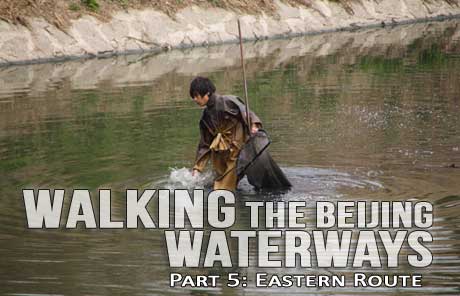China gets tougher with food crimes
Updated: 2013-05-03 21:45
(Xinhua)
|
|||||||||||
BEIJING - China will punish the production and sale of unsafe food products more harshly to combat increasingly severe food scandals, judicial authorities said on Friday.
The Supreme People's Court and the Supreme People's Procuratorate have issued explanations that specify crimes related to food safety and set standards for the punishment for these crimes, court spokesman Sun Jungong told a press conference.
The explanations are believed to form a rigorous system to punish crimes that threaten food safety, he said.
"The food safety situation is still very grave, because the number of crimes undermining food safety has been climbing with notorious cases related to food safety occurring now and then," he said, citing in particular cases involving the use of chemicals while processing meat products and the production of toxic bean sprouts.
The crimes have severely harmed public health, economic order and society, he added.
Some 2,088 people have been subject to punishment between 2010 and 2012 in 1,533 food safety cases. The number of such cases grew exponentially in the three years.
The number of poisonous food cases tried by Chinese courts rose from 80 in 2010 to 861 in 2012, Sun said.
A selection of typical cases involving food-related crimes were published by the Supreme People's Court on Friday.
In one case in 2009, defendant Wang Changbing made spirits with tap water, additive and industrial alcohol that he bought in Yidu city, central China's Hubei province. Five people died and six were left in serious condition after drinking Wang's poisonous beverage.
Wang received a death penalty with a two-year reprieve, and was fined 990,000 yuan ($160,400).
Other cases involved producing and selling gutter oil, as well as pork from pigs that had died of diseases. Defendants in these cases were punished with imprisonment and fines.
According to Chinese criminal law, there are two basic charges of undermining food safety. The first is producing and selling food that cannot meet the safety standard, and the second is producing and selling poisonous and harmful food. But the charges should meet the important conditions of "enough to cause serious food poisoning and other food-borne diseases."
Miao Youshui, a criminal judge of the SPC, said due to different understandings of the important conditions, this clause is not often used in practice.
For this reason, the judicial interpretations list five major dangerous situations, including containing pathogenic microforms, pesticide residues, heavy metals and other substances that significantly surpass the requirements of standards.
It also includes animals and their meat that die from diseases or unknown causes, and do not qualify in inspection and quarantine; and food for infants that their nutrition seriously cannot meet the requirements of food safety standards, among others.
Producing and selling health care products with illegal additives, such as Viagra in men's health food, will be charged with the crime of producing and selling poisonous and harmful food.
In the meantime, the SPC issued a judicial interpretation on dereliction of duty in food safety supervision, one of the major reasons for the increase of food-related crimes, said Sun.
The judicial interpretation makes it clear that dereliction of duty in food safety supervision should be charged with the crime of dereliction of duty in food safety supervision, instead of the lighter offenses of either abuse of power or only dereliction of duty.
Related Stories
China to unify bottled water quality standards 2013-05-03 20:06
Two preschool girls die from poisoning 2013-05-03 09:29
Police in major crackdown on tainted meat 2013-05-03 09:02
Over 900 arrested in China for meat-related crimes 2013-05-02 23:01
Baby formula: whose problem? 2013-05-02 13:27
Lamb stands the test of time 2013-05-01 00:35
Today's Top News
Investors shake off speculation of new listings
No evidence of human transmission: WHO
Rekindling memories of Nixon's 1972 visit
Unified standards for bottled water in the pipeline
Crackdown on food crimes
EC: China's economy to grow 8%
Former official sentenced to life imprisonment
Restaurants serve up measures to fight slump
Hot Topics
Lunar probe , China growth forecasts, Emission rules get tougher, China seen through 'colored lens', International board,
Editor's Picks

|

|

|

|

|

|





